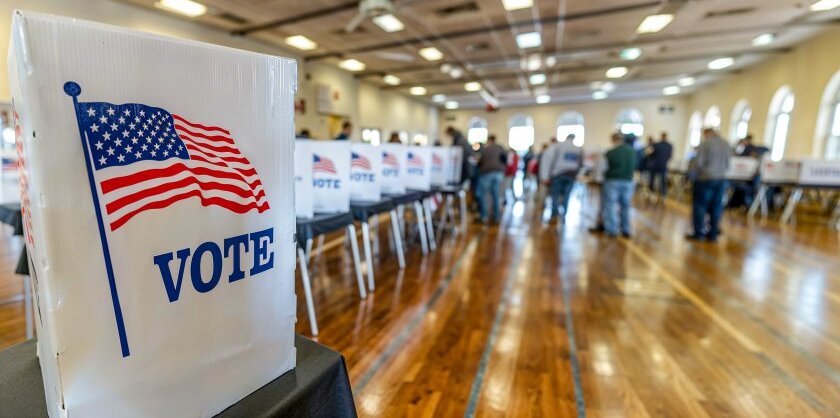What’s happened in Wyoming illustrates how closed primary elections shut too many voters out of the electoral process, intensify political polarization and raise important questions about funding these elections.
County Clerk Don Blevins Jr. has confirmed that voters in at least two precincts received the wrong paper ballots for Tuesday’s primary election and, therefore, voted in the wrong district, which will nullify their vote.
The Massachusetts attorney general hopeful is the first Black woman who has passed the signature threshold for statewide office. She must receive at least 15 percent of the delegate vote in June to officially make the ballot.
Voting rights and immigrant advocates in Georgia argue that many immigrant communities are unable to fully access election materials due to a lack of non-English ballots and a limited number of available languages.
Questions about the Republican Registration Coalition’s interference in Philadelphia with voters’ mail-in ballots has resulted in several firings. Republicans have weaponized the situation to sow election mistrust.
Some district attorneys are concerned about the lack of sufficient evidence to investigate noncitizen voting cases, an issue which is at the forefront of Secretary of State Brad Raffensperger’s re-election campaign.
Mayor Dave Bronson has launched an inquiry into the municipal election that occurred last month, in part based upon security complaints from conservative candidates. Critics see the move as an attempt to undermine the election process.
The two Texas cities will vote on abolishing low-level marijuana charges in elections this spring and fall. Sixty percent of state residents believe marijauna possession should be legal, at least for low amounts.
Plus a look at how redistricting reduces competition; why Trump remains the price of admission into GOP primaries; and, the trouble Democrats are in ahead of the midterms.
The bill gives the state’s Bureau of Investigation authority to investigate potential infractions if they could have put the outcome of an election in doubt and allows the public to review ballots after elections are certified.
The Michigan governor said the bill, which would have required some residents to send identifying information to their election clerk to ensure their voter registration wasn’t canceled, didn’t advance the state’s election goals.
Arizona Could Force U.S. Supreme Court to Again Consider Proof of Citizenship for Voter Registration
Gov. Doug Ducey signed a bill into law that requires Arizona election officials to verify the citizenship status of registered voters and it could go into effect before the state's primaries in August. But Arizona isn't the only state requiring proof of citizenship.
The ruling found that the restriction of drop boxes, creating new requirements for voter applications and banning interactions with voters in line were unconstitutional and unenforceable.
An enthusiasm gap among young voters has Democrats worried about the upcoming midterms. Plus, Andrew Cuomo wants his old job back, the South Dakota AG dodges impeachment and life imitates art in Indiana as candidate takes advantage of “the name you know.”
Two platforms are offering another layer of security in the voting process; one offers voters real-time alerts if registration information changes, while another flags unusual patterns of record updates for election officials.
To pick a temporary replacement for the late U.S. Rep. Don Young, a special election will be held on June 11 and Aug. 16. The June primary will be the first statewide by-mail election and the August election will be the first to use ranked choice voting.
Most Read















